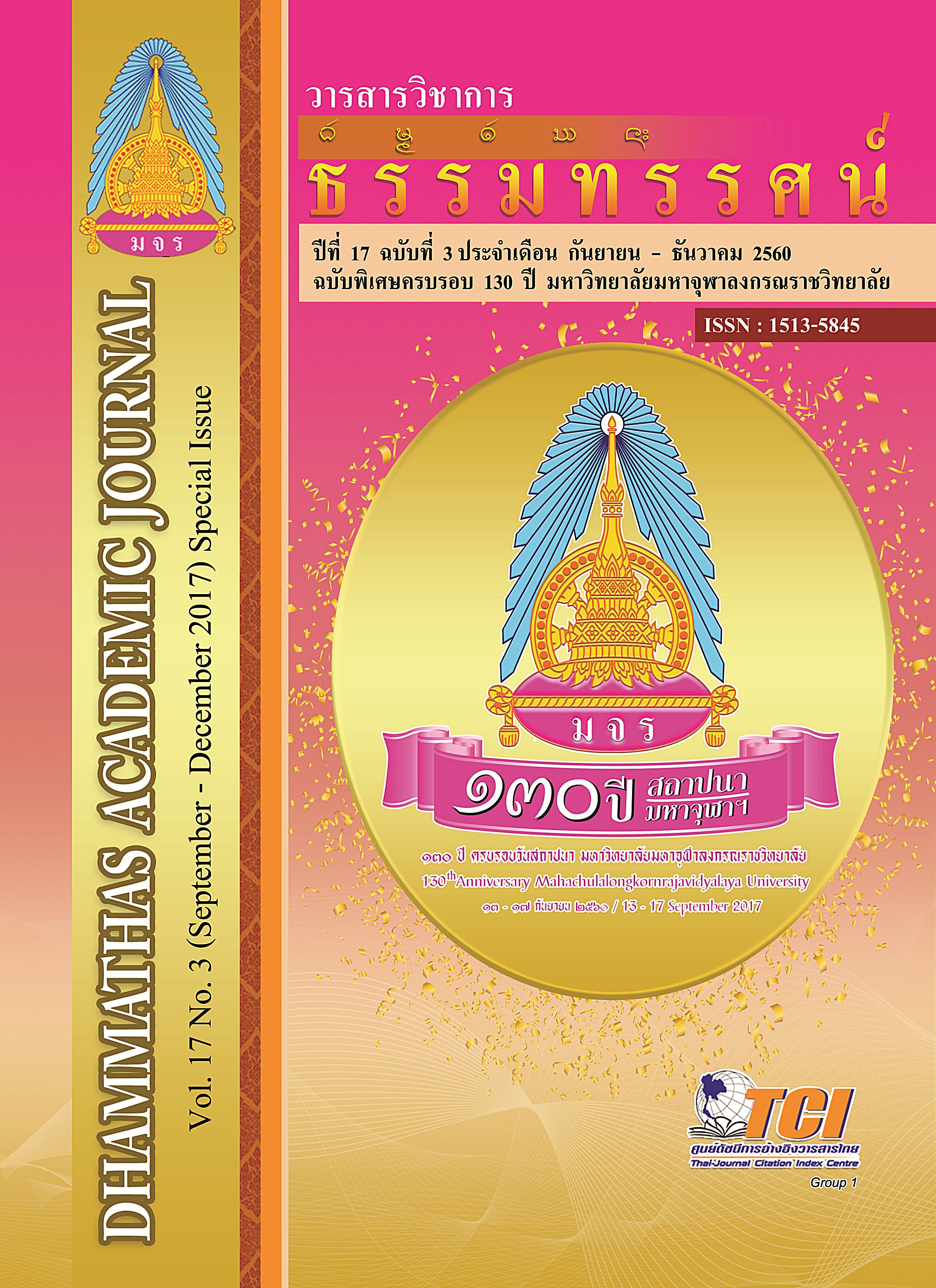A Buddhist Integrated Model of the Development of service Mind Characteristic of the Students in Opportunity Expansion Schools Under the Office of KhonKaen Primary Educational Service Area Zone 5
Main Article Content
Abstract
The aims of this research were: to study the principles and processes of the The aims of this research were: to study the principles and processes of the service mind characteristics of the students in the opportunity expansion schools under the office of KhonKaen primary educational service area 5; to create the Buddhist integrative model of the service mind characteristics of the students. This study was a qualitative research carried out the means of the in-depth interview and observation with the target group in 14 schools, including the school administrators, teachers, students and their parents. The obtained data were interpreted by the descriptive analysis. The research results revealed that: 1. The principles and processes the service mind characteristics relate to using the principles of Brahmavihara-dhamma (Pāli: brahmavihāra, sublime states of the mind)IV Gharavasadhamma (Pāli: ghāravasadhamma, virtues for a good household life), VI Saraniyadhamma (Pāli: sālāṇīyadhamma, states of conciliation) and III Attha ((Pāli:Attha; benefit, adventage gain, welfare, goal purpose) to bring the mind to the practices through the process of Sangahavatthu-principles (Pāli: saṅgahavatthu, bases of social solidarity) for the benefits of oneself and the others, called ‘mutual advantages’. 2. The processes of the service mind characteristics of the students in the Opportunity Expansion Schools under the Office of KhonKaen Primary Educational Service Area 5 were undertaken by taking the policies from the main institute to be managed in the educational institutes; to design the learning activities; to be integrated in the learning contents, and school and community activities such as academic activities, the student development activities, the activity of in-classes learning time reduction and learning time expansion, traditions, volunteer activity and student activity. This was the situation for training and developing the service mind of the students, measured by observing their behaviors, work outcomes and the quality levels of each semester. 3. The Buddhist integrative model of the development of the service-mind characteristics of the students in the opportunity expansion schools under the office of KhonKaen primary educational service srea 5 (B-CAM Model) is consisted of ‘B-Buddhist integrative’, meaning the integration of Buddhist principles: IV Brahmavihara-dhammas, IV Sangahavatthu-dhammas, IV Gharavasadhamma, VI Saraniyadhammaand III Attha into the operation for developing the service mind characteristics; C-Camp, meaning the participation of the Buddhist principle integrated camp for developing the service mind through the activity management, (3 days and 2 nights); A-Action, meaning the service mind performance which all the students planned to take the concept, knowledge and experiences obtained from the camp to design the mind service activities and then follow their plans; M-Meeting, meaning the meeting for experience exchange and evaluation of each individual after the actual operation of the mind service.

